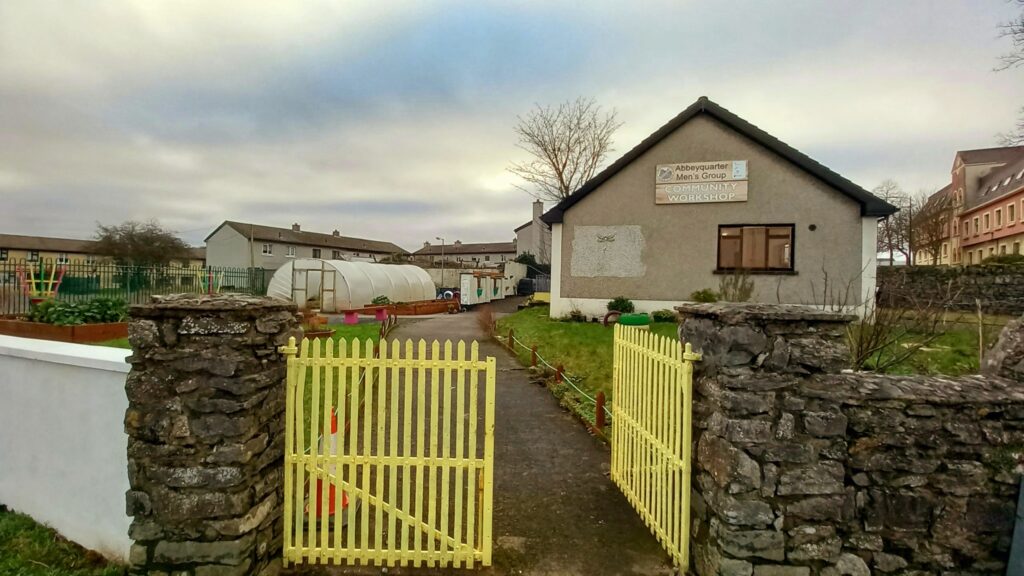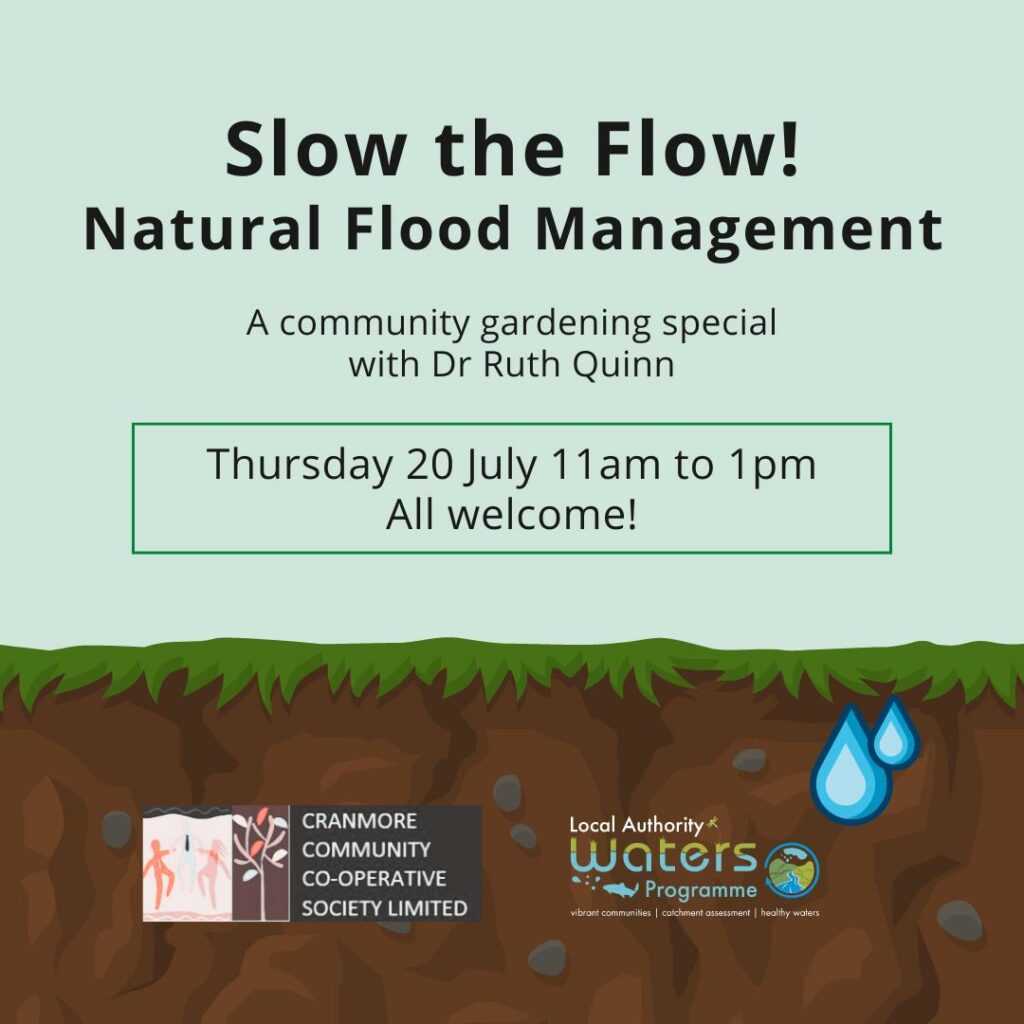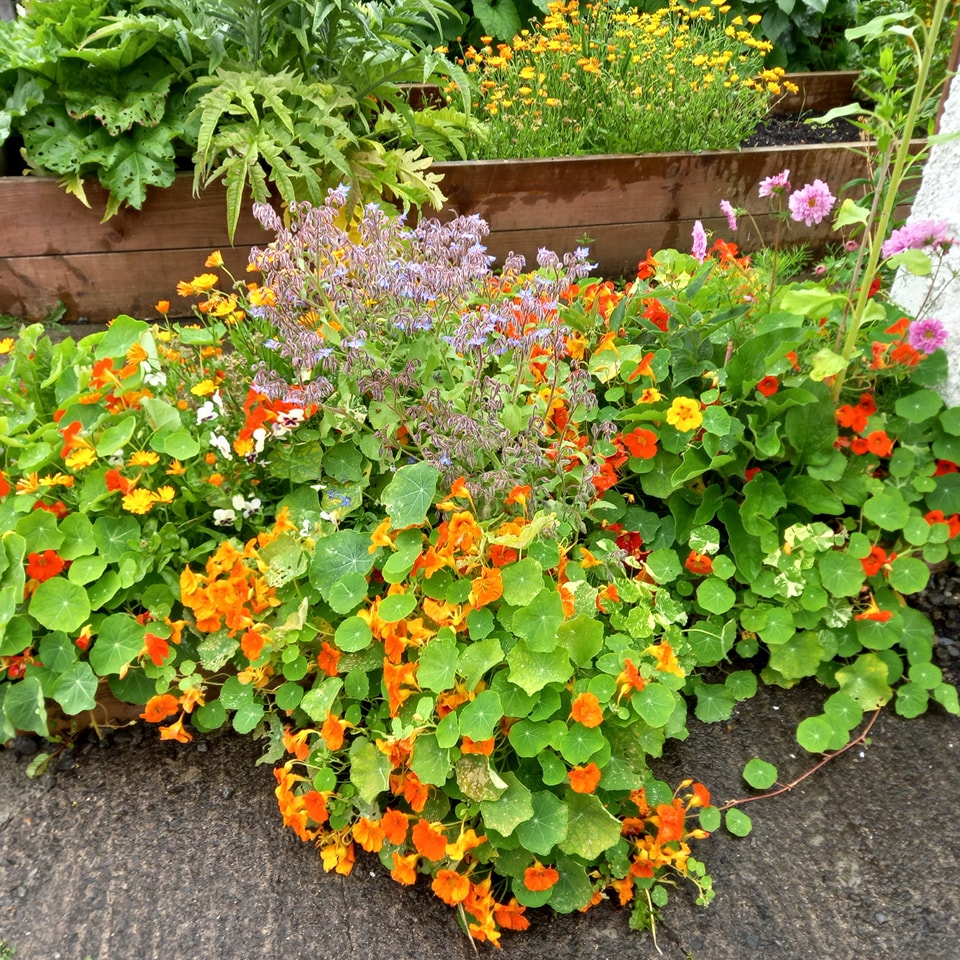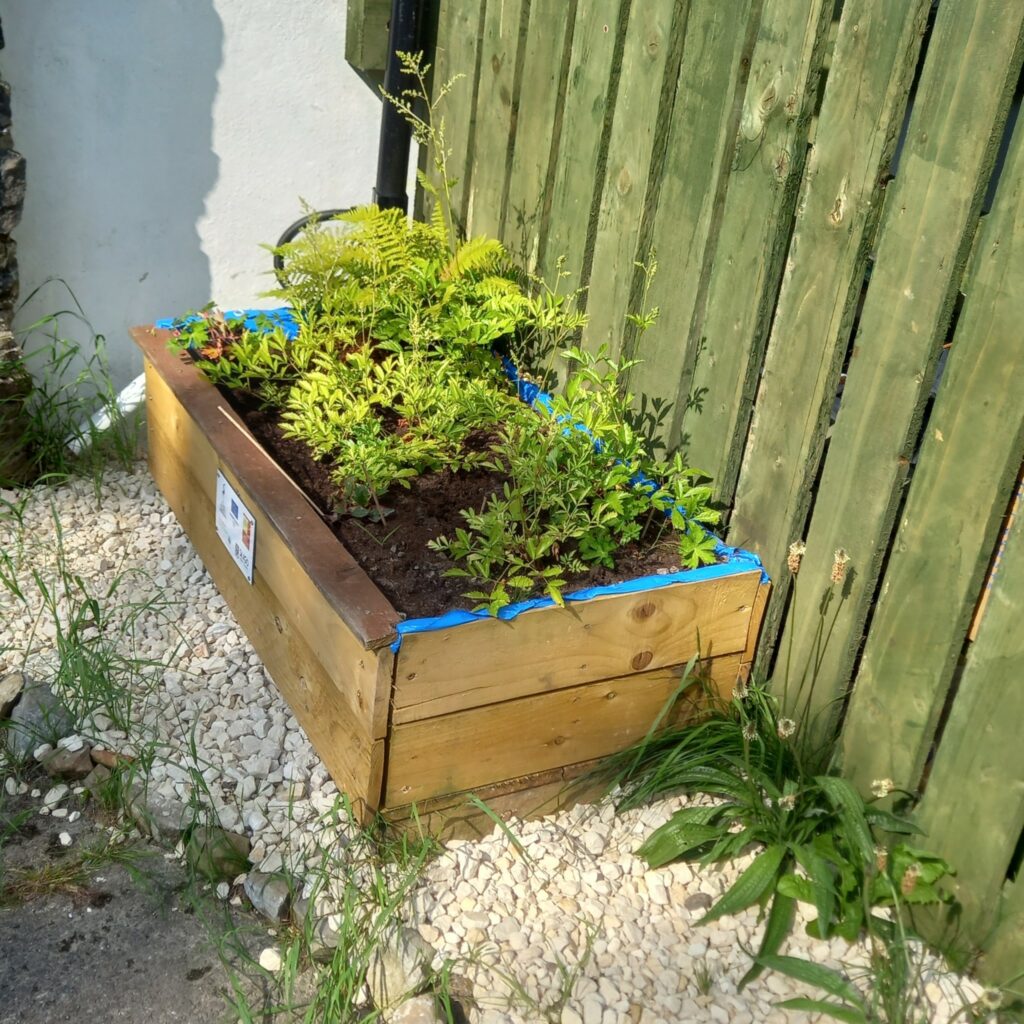Biodiversity Garden and Tree Nursery Project
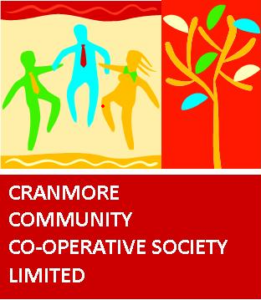
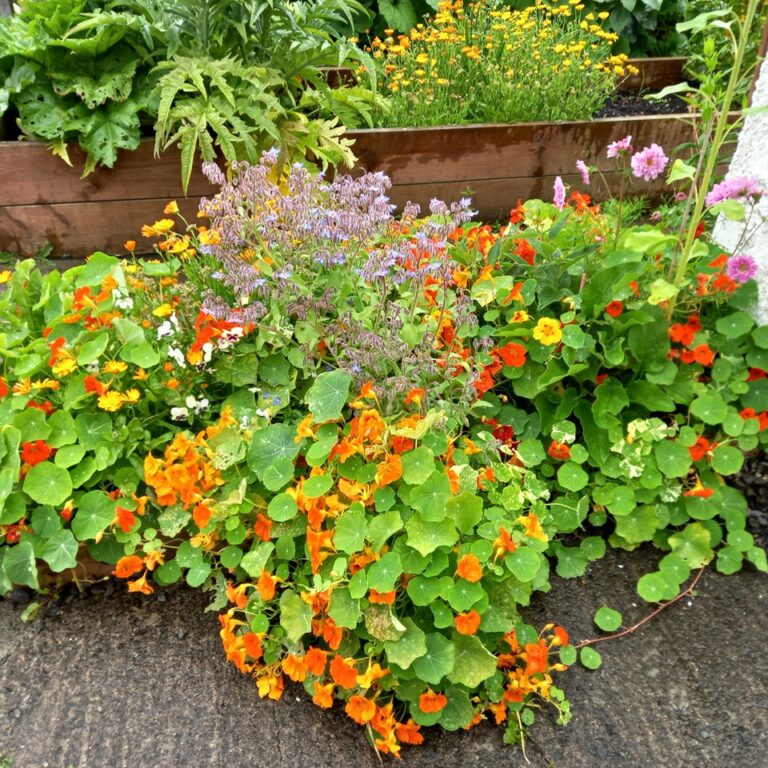
The nominated project is two-fold and a long-term initiative which aims to involve as many community members as possible and enhance our environment, raise awareness of the biodiversity crisis, train our resilience and give everybody the opportunity for everyday climate action.
The Biodiversity Garden Workshops started in the summer 2021 and gave participants the opportunity to save some local wildflower seeds, observe bees, build a bug hotel and birdhouses and learn about the importance of wildlife to our own food chain. The tree nursery is being set up from November onwards. Participants are learning about tree planting, foraging local native tree seeds, sowing trees and will plant the seedlings.
The participants will create and nurture a feeling of ownership over the trees to be planted in the community in collaboration with the local regeneration team’s architect and landscapers. Participants will also learn about local environmental issues, climate action, the importance of trees as providers of food and habitat to local wildlife and about food security for us humans. All are welcome to the different components of building the tree nursery.
- More Info
- Gallery
- Contact
Challenge
The strategic plan states that they are working towards the UN Sustainable Development Goals in all our activities. The Biodiversity Gardening Workshops and the Tree Nursery are focussing on goals 3, 4, 11, 13 and 15 in particular. They stress the importance of soil, the harm that pesticides do and how they as individuals can help biodiversity and wildlife and by doing so enhance our own environments. This feeds into sustainable cities and communities by stressing life on land and climate action. Through this community education they are hoping to foster the participants’ health, both physical health and mental wellbeing. Cranmore is the largest housing estate in the North-Theyst of Ireland and is currently going through a regeneration process. Cranmore is described as disadvantaged and very disadvantaged in the Pobal HP 2016 Index. By inviting members from the community in an inclusive way they are offering them insights into sustainability that are often hard to access for older community members and those not in formal education. However, participants are not only learners. In our programs they stress peer education and encourage participants to share their own experience and learn from each other. The Biodiversity 3 of 5 Gardening and Tree Nursery initiative has been particularly successful at fostering intergenerational dialogue. Participants are from different age groups. and also learners in their 60s and 70s brought along their grandchildren to an event. They then ran a tree walk and a workshop called ‘Soil is not Dirt’ for young children to stress the importance of the whole community being involved with these issues of sustainable development. Trees they’re also the topics of our Heritage The 2021 contribution and of our Sligo Culture Night event called ‘ArboriCulture Night’. By focussing on trees in the run up to the start of the tree nursery project they theyre able to involve artists and a photographer from the community as they’ll as raising awareness of the importance and the beauty of trees through our newsletter and social media. This holistic approach of involving everyone and running long-term themes helps us show the interconnectedness of things.
Target group
While the project is mostly aimed at those living in the community, we consider other organisations as partners, too, and have invited learners from nearby organisations such as CE scheme workers, day service users of Rehab Care and students and staff from the Community Training Centre and Youthreach. Other participants are also members of the local Men’s Shed and Cranmore Women’s Group. Participants in our initiative and in the community garden in particular are mostly newcomers to concepts in sustainable development and while they often have lived experience of gardening and growing, they appreciate learning about the climate crisis and the biodiversity crisis and what part they can play.
Solution
Participants will have a greater understanding of the interconnectedness of climate change and biodiversity loss. Participants will be able to apply some simple steps in their own gardens to make them more wildlife-friendly and protect the environment. Participants will be part of the solution, feel ownership of the solution and be more prepared for the future. Participants will have reconnected to nature and fostered their physical health and mental wellbeing. We are currently looking into opportunities for a QQI-accredited horticulture course as a follow-up next spring. Participants will also have got to know the Organic Centre in Rossinver who run an accredited one-year course and will have had the opportunity to talk to our education mentor
Innovation
The nominated project is two-fold and a long-term initiative which aims to involve as many community members as possible and enhance our environment, raise awareness of the biodiversity crisis, train our resilience and give everybody the opportunity for everyday climate action. The Biodiversity Garden Workshops started in the summer 2021 and gave participants the opportunity to save some local wildflower seeds, observe bees, build a bug hotel and birdhouses and learn about the importance of wildlife to our own food chain. The tree nursery is being set up from November onwards. Participants are learning about tree planting, foraging local native tree seeds, sowing trees and will plant the seedlings. The participants will create and nurture a feeling of ownership over the trees to be planted in the community in collaboration with the local regeneration team’s architect and landscapers. Participants will also learn about local environmental issues, climate action, the importance of trees as providers of food and habitat to local wildlife and about food security for us humans. All are welcome to the different components of building the tree nursery
Unique Selling Point
This has been a project that has included multiple organisations and groups in the county. While the project is mostly aimed at those living in the community, we consider other organisations as partners, too, and have invited learners from nearby organisations such as CE scheme workers, day service users of Rehab Care and students and staff from the Community Training Centre and Youthreach. Other participants are also members of the local Men’s Shed and Cranmore Women’s Group. Sligo Environmental Network, a voluntary community group, have offered some support in devising our programs as part of our participation in their Environmental Action Academy with Sligo Public Participation Network.
Impact
Participants will have a greater understanding of the interconnectedness of climate change and biodiversity loss. Participants will be able to apply some simple steps in their own gardens to make them more wildlife-friendly and protect the environment. Participants will be part of the solution, feel ownership of the solution and be more prepared for the future. Participants will have reconnected to nature and fostered their physical health and mental wellbeing. We are currently looking into opportunities for a QQI-accredited horticulture course as a follow-up next spring. Participants will also have got to know the Organic Centre in Rossinver who run an accredited one-year course and will have had the opportunity to talk to our education mentor.
Feasibility / Transferability
text
Website: https://cranmore.ie/
11 Devins Drive Cranmore | Tel: 071-9149951 | Mobile: to 087-1161483
Email: info@cranmore.ie


